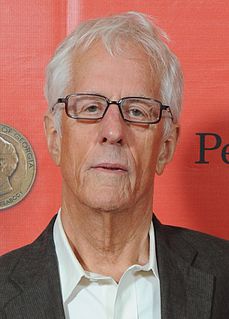A Quote by Marvin Minsky
I started working at a point in history when digital computers were becoming mature, and before that, there were no such machines.
Related Quotes
Before information age, living standards basically were flat. Since then, they've been growing 2 percent a year were about 30 times richer. So technology, machines is really, you know, arguably the most important thing that's happened to humanity in terms of our living standards. You could look to the introduction of digital computers in the 1950s.
People over the age of thirty were born before the digital revolution really started. We've learned to use digital technology-laptops, cameras, personal digital assistants, the Internet-as adults, and it has been something like learning a foreign language. Most of us are okay, and some are even expert. We do e-mails and PowerPoint, surf the Internet, and feel we're at the cutting edge. But compared to most people under thirty and certainly under twenty, we are fumbling amateurs. People of that age were born after the digital revolution began. They learned to speak digital as a mother tongue.
When I worked with General Electric, again this was soon after the Second World War, you know, I was keeping up with new developments and they showed me a milling machine and this thing worked by punch cards - that's where computers were at that time, and everybody was sort of sheepish about how well this thing worked because in those days machinists were treated as though they were great musicians because they were virtuosos on these machines.
Israel, the Israelis, and the rest of the world have been brainwashed. They don't think of pre-1948, they have no idea Palestinians were in Israel, who we were before '48. As if we were born in 1948 according to them. They have no notion that we had a country, houses, rebelled against the Ottomans and the British. They think history in that region started in that moment.
When things are digital, they're all 1's and zero's, and so they commingle in ways we didn't anticipate and you could do things that were not like publishing or television, or computers, but were some intersection of those and that got known to be convergence, so between the switching, or trading of places and the convergence, you have today's media.
I have been motivated by this idea since I was a kid that if we invented machines that were created in the way that people are - were aware, have free will, inventive machines, machines that would be geniuses - potentially, they could reinvent themselves. They're not just applying it to other things - they could actually redesign themselves.
Every disruptive innovation is powered by a simplifying technology, and then the technology has to get embedded in a different kind of a business model. The first two decades of digital computing were characterized by the huge mainframe computers that filled a whole room, and they had to be operated by PhD Computer Scientists. It took the engineers at IBM about four years to design these mainframe computers because there were no rules. It was an intuitive art and just by trial and error and experimentation they would evolve to a computer that worked.





































